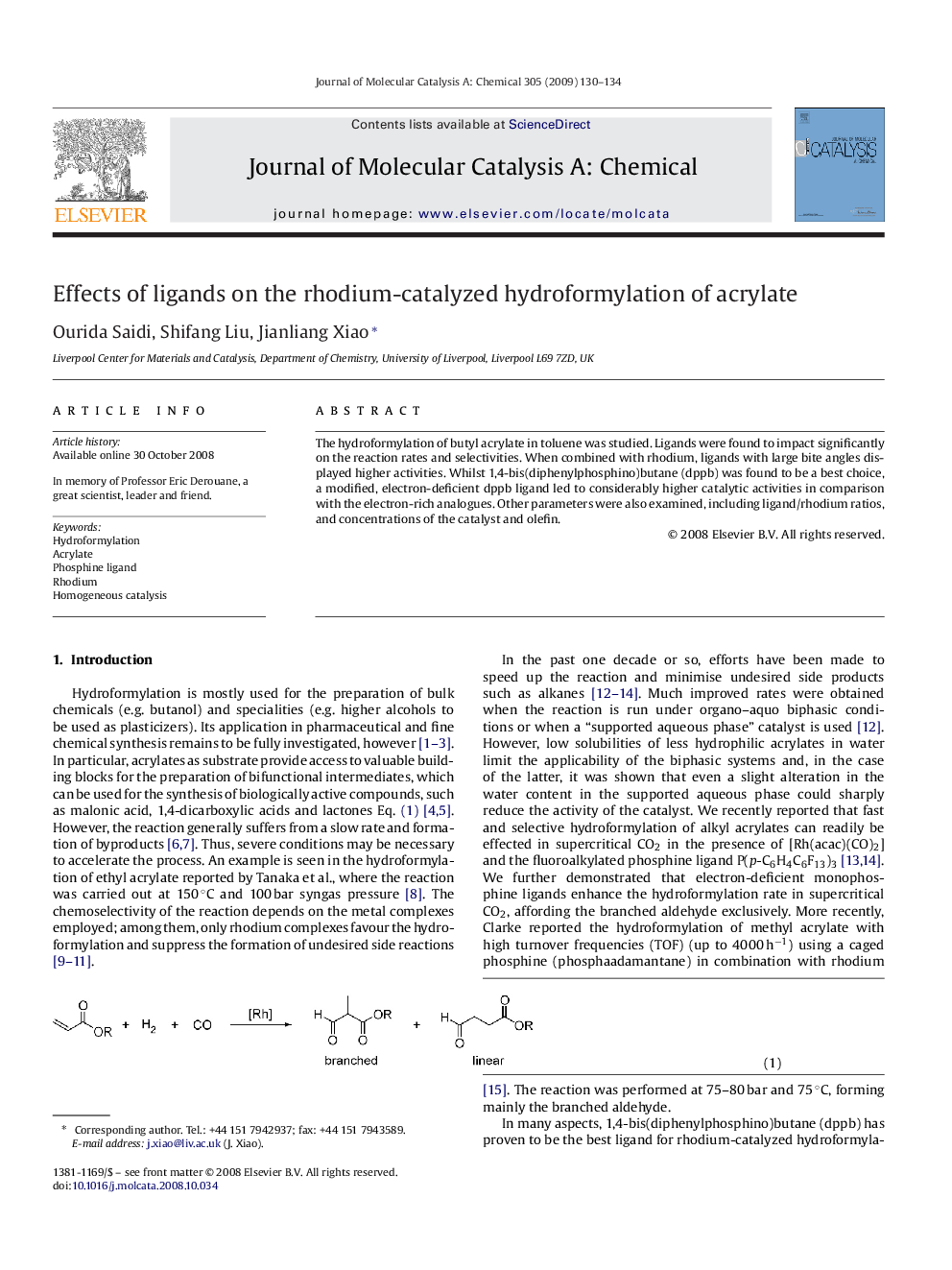| Article ID | Journal | Published Year | Pages | File Type |
|---|---|---|---|---|
| 66986 | Journal of Molecular Catalysis A: Chemical | 2009 | 5 Pages |
The hydroformylation of butyl acrylate in toluene was studied. Ligands were found to impact significantly on the reaction rates and selectivities. When combined with rhodium, ligands with large bite angles displayed higher activities. Whilst 1,4-bis(diphenylphosphino)butane (dppb) was found to be a best choice, a modified, electron-deficient dppb ligand led to considerably higher catalytic activities in comparison with the electron-rich analogues. Other parameters were also examined, including ligand/rhodium ratios, and concentrations of the catalyst and olefin.
Graphical abstractElectron-deficient diphosphine is shown to enhance the rate of rhodium-catalyzed hydroformylation of acrylate, whilst the electron-rich analogue affords the opposite.Figure optionsDownload full-size imageDownload as PowerPoint slide
